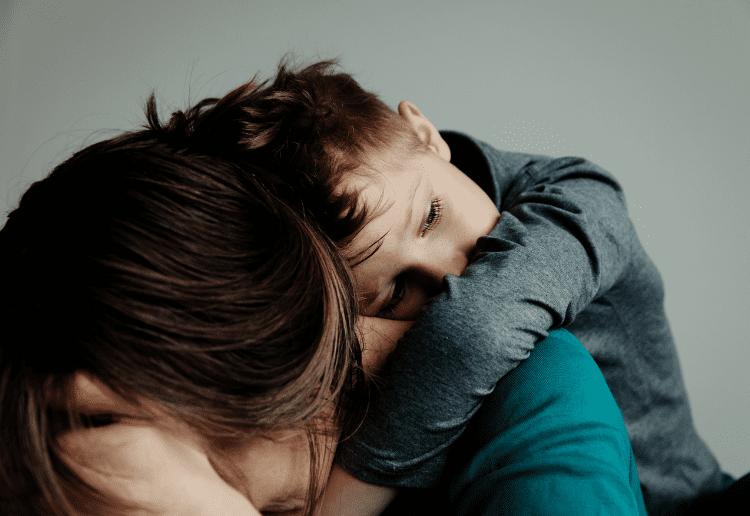Losing a parent is a traumatic experience for any child, and challenging to navigate too. Widow Rechelle Leahy shares her experience and tips for helping kids through grief.
Losing a loved one is always a challenging experience, however for a child, losing their parent or loved one can be traumatic and difficult to come to terms with. Unfortunately, in Australia, just over 300,000 children will lose a parent before they reach the age of 18. Rechelle Leahy and her late husband, Allistair, had to think carefully about how to approach the topic of his impending death from cancer with their two young boys.
“When my husband was diagnosed with stage 4 colon cancer in 2013, we had to make a decision about how we were going to tell our two little boys who were just four and six years old at the time. We needed to find a balance between honesty and ensuring that they didn’t become scared and anxious,” says Rechelle.
Unfortunately, many children will lose a loved one at some point, whether that be a parent, grandparent, friend or sibling. Though death is inevitable and many of us will experience the loss of loved ones, talking about death is not something that is encouraged in Australian culture. Rechelle continues, “I believe it is so important to speak to children honestly about the end of life and provide them, in a kind and respectful way, with the tools to understand the process in order to grieve properly.”
Rechelle has offered her 5 tips to help speak to children about death:
1. Be Honest
Be open and honest, kind and respectful – children deserve honest answers. Continue open conversations and be honest about your own feelings. This has helped my boys to see that adults grieve and are sad too and this makes the children’s feelings a little less difficult for them to cope with. It’s not a comfortable thing to do, but having these conversations, has definitely helped us manage our way through an awful situation.
2. Explain in easy terms
Use the correct words for death and disease where possible, however think about how you can simplify this to something that they can understand. For example, when my husband was dying of cancer we chose to explain to the boys that Dad had cancer but used the analogy of a video game so they could understand that we were trying to fight bad cells with medicine.
3. Let them experience their feelings
Understand that you can’t stop children feeling sad, and it is good to let them know feelings are important and natural. What you can do is support them by listening and talking.
4. Speak about your loved one who passed
Encourage them to speak about their loved one. We have never stopped saying Allistair’s name and talking about our memories of him. A Memory Box is a good way of helping children remember loved ones who have died, a place to store special things that belonged to their loved one.
5. Explain ahead of time
Try to help your children to understand death, funerals, burial and cremation before they are confronted with them when someone close to them dies. This can start with explaining death when a pet dies or even looking to nature to explain why leaves or flowers wilt and die – understanding death helps children to accept that it is a part of the life cycle.
Rechelle Leahy launched iDecide, a platform that encourages End of Life Planning (EOLP) and reduces the stigma around the topic of death. The platform is a safe and secure place where users can plan, store and share crucial information for loved ones or their power of attorney, in the case of their death.
The idea behind iDecide transpired when Founder and CEO Rechelle reflected upon her own varied experiences of dealing with the death of three close family members including her husband. Rechelle continues, “I created iDecide to allow people to truly grieve without having all the stress of organising end of life affairs and giving people the opportunity to open up and have these important conversations before they pass away.”




















10:46 am
9:46 am
11:13 pm
10:17 pm
6:40 am
2:22 pm
6:08 pm
11:13 am
12:18 am
8:22 pm
5:00 pm
12:40 pm
7:37 pm
12:26 pm
9:00 am
7:39 am
7:25 am
-

-
-
Ellen replied
- 26 Aug 2021 , 7:46 am

Reply6:54 am
2:12 am
12:11 am
- 1
- 2
- »
Post a commentTo post a review/comment please join us or login so we can allocate your points.